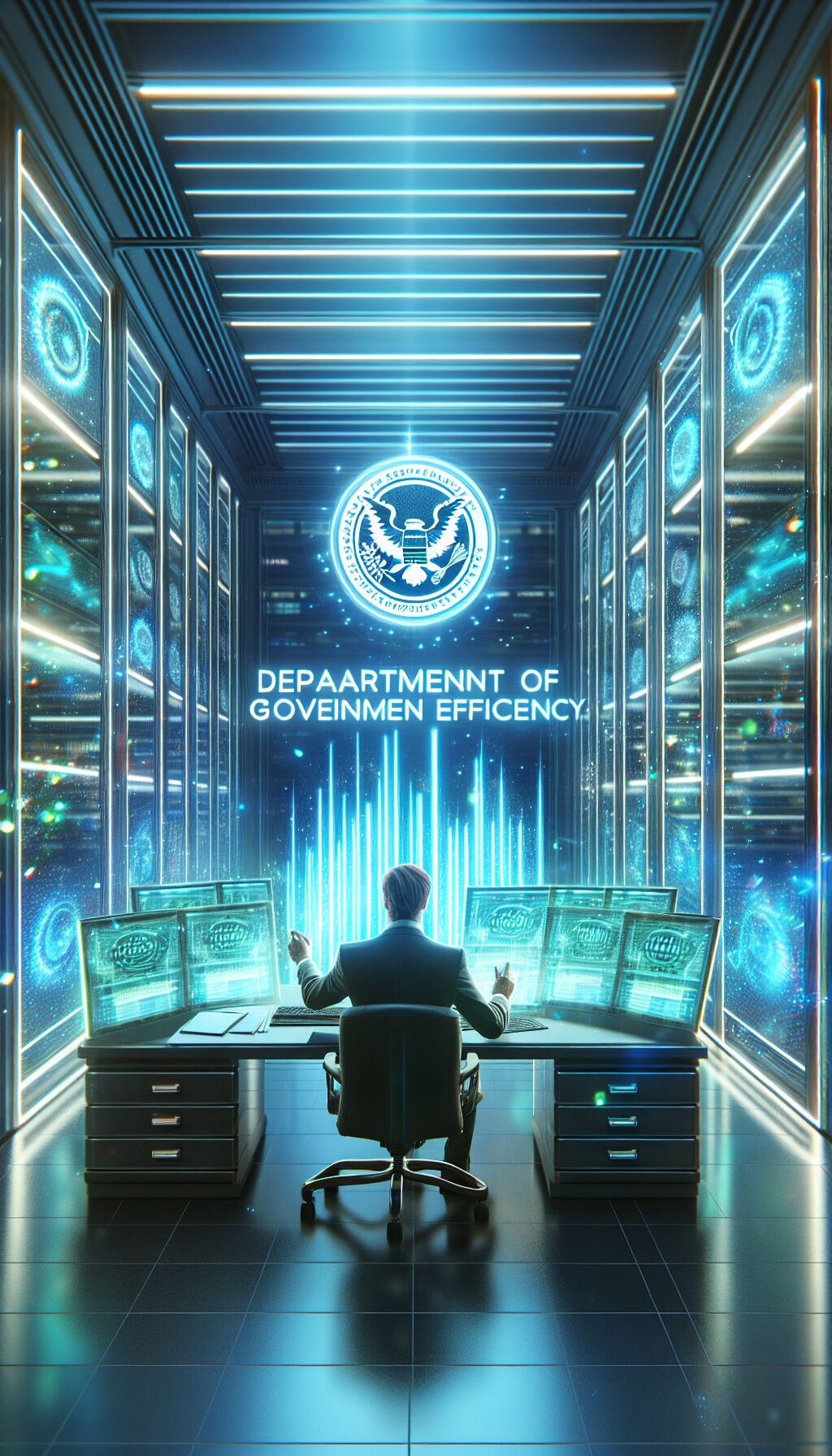Introducing the Department of Government Efficiency (DOGE)
The recently formed Department of Government Efficiency (DOGE) is set to commence operations promptly following the inauguration of the Trump administration. With a clear mission to eliminate wasteful spending and enhance transparency in government financial activities, DOGE is poised to influence fiscal policy in significant ways.
A New Approach to Government Spending
Although DOGE is not classified as a Cabinet-level department, it functions as a blue-ribbon committee outside traditional governmental structures. Its primary focus is to address issues surrounding government expenditure, waste, efficiency, and operational effectiveness.
Leading the charge are notable figures such as Elon Musk, the CEO of Tesla and SpaceX, alongside tech entrepreneur Vivek Ramaswamy. Both proponents estimate that as much as trillion could be sliced from the federal budget through strategic spending cuts, elimination of certain government programs, and workforce reductions.
Working in Concert with Existing Structures
Despite lacking formal authority, DOGE has committed to collaborating closely with the Office of Management and Budget. This partnership aims to reform regulatory processes, implement administrative cuts, and identify potential cost savings across various sectors of government.
In a bid to bolster DOGE’s effectiveness, several House Committees and caucuses have expressed their readiness to collaborate with the initiative until its operations conclude on July 4, 2026—the 250th anniversary of the United States’ Independence Day. This bipartisan engagement signals a collective recognition of the need for fiscal restraint.
Voices from the Legislature
Rep. Aaron Bean (R-Fla.), co-chair of the Delivering Outstanding Government Efficiency Caucus, underscored the urgency of the situation. “Our national debt has surpassed a staggering trillion, and that should serve as a wake-up call for all Americans,” he stated. “Taking on government inefficiencies is no easy task, and we need all hands on deck to avoid fiscal calamity.”
Additionally, House Oversight Chair James Comer (R-Ky.) is set to introduce a new subcommittee led by Rep. Marjorie Taylor Greene (R-Ga.) that will focus on overseeing DOGE’s efforts. This subcommittee’s mandate includes investigating excessive spending, revamping federal agency structures for enhanced efficiency, and streamlining bureaucratic processes.
Legislative Momentum
On the Senate front, GOP Sen. Joni Ernst will lead the Senate Delivering Outstanding Government Efficiency Caucus. She emphasized her commitment to eliminating wasteful spending, stating, “From billion-dollar boondoggles to welfare for politicians, my decade-long investigations have unveiled unsustainable levels of federal expenditure.”
Echoing this sentiment, Senate GOP leadership has reiterated their resolve to implement rigorous oversight measures aimed at trimming unnecessary expenditures. “The tables are finally turning, and waste is on the chopping block,” Ernst proclaimed as she expressed enthusiasm for the collaboration between DOGE leaders and legislative bodies.
A Historical Perspective
Efforts to reduce government waste are not novel; America has seen various initiatives throughout its history with varying degrees of success. For instance, President Theodore Roosevelt established the Keep Commission in 1905, aimed at reinforcing efficient government practices. Fast forward to the Taft administration, which appropriated funding to reform government operations for heightened effectiveness.
In more recent history, President Bill Clinton launched the National Partnership for Reinventing Government, spearheaded by Vice President Al Gore. This initiative sought to transform federal agencies into efficient, business-like entities. Under President Obama’s administration, the Campaign to Cut Government Waste was initiated, further exemplifying the ongoing quest for fiscal prudence.
DOGE’s Future Plans and Aspirations
Currently located in a glass-walled office space in Washington, D.C., leased by SpaceX, DOGE is actively recruiting personnel, having onboarded around 10 individuals thus far. The recruitment focus is on finding software engineers and experts in artificial intelligence to support its ambitious agenda. High-profile supporters such as Palantir co-founder Joe Lonsdale and hedge fund manager Bill Ackman are also believed to be involved in this initiative.
Goals set by Musk and Ramaswamy for DOGE include simplifying the U.S. tax code, auditing the Department of Defense, enhancing the transparency of foreign aid, and ultimately returning taxpayer funds from certain federal expenditures back into the national treasury.
James Fishback, a close associate of Ramaswamy, expressed confidence in the operational model of DOGE, stating, “I expect DOGE to function in a ‘founder mode’—lean and led by two visionary individuals dedicated to detail-oriented work.” The road ahead for DOGE is fraught with challenges, yet the commitment to fiscal accountability appears unwavering.
